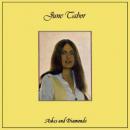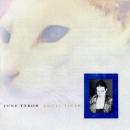I'm a four-loom weaver as many a one knows;
I've nowt to eat and I've worn out me clothes.
My clogs are both broken and stockings I've none;
You'd scarce give me tuppence for owt I've gotten on.
Old Billy o't' Bent he kept telling me long
We might have better times if I'd nobbut hold my tongue.
I've holden me tongue till I've near lost my breath
And I feel in me own heart I'll soon clem to death.
I'm a four-loom weaver as many a one knows;
I've nowt to eat and I've worn out me clothes.
Old Billy's awreet, he never were clemmed
And he never picked o'er in his life.
We held on for six weeks, thought each day were the last;
We've tarried and shifted till now we're quite fast.
We lived upon nettles while nettles were good
And Waterloo porridge was the best of ours food.
I'm a four-loom weaver as many a one knows;
I've nowt to eat and I've worn out me clothes.
Me clogs are both broken, no looms to weave on,
And I've woven meself to far end.
I've nowt to eat and I've worn out me clothes.
My clogs are both broken and stockings I've none;
You'd scarce give me tuppence for owt I've gotten on.
Old Billy o't' Bent he kept telling me long
We might have better times if I'd nobbut hold my tongue.
I've holden me tongue till I've near lost my breath
And I feel in me own heart I'll soon clem to death.
I'm a four-loom weaver as many a one knows;
I've nowt to eat and I've worn out me clothes.
Old Billy's awreet, he never were clemmed
And he never picked o'er in his life.
We held on for six weeks, thought each day were the last;
We've tarried and shifted till now we're quite fast.
We lived upon nettles while nettles were good
And Waterloo porridge was the best of ours food.
I'm a four-loom weaver as many a one knows;
I've nowt to eat and I've worn out me clothes.
Me clogs are both broken, no looms to weave on,
And I've woven meself to far end.
Contributed by Bernart - 2013/7/24 - 13:14
Credo però che sia più probabile che la canzone risalga proprio al 1820, quando in Scozia i lavoratori tessili furono i protagonisti dell'insurrezione nota come "Radical War", causata dalle pessime condizioni dei lavoratori dopo la fine delle guerre napoleoniche e dalla feroce repressione poliziesca.
Il 3 aprile del 1820 quasi tutti i lavoratori di Scozia incrociarono le braccia.
La reazione della Corona fu brutale: tre dei leader della rivolta - James Wilson, Andrew Hardie e John Baird - furono giustiziati; decine di altri furono inviati ai bagni penali in Australia...
Il 3 aprile del 1820 quasi tutti i lavoratori di Scozia incrociarono le braccia.
La reazione della Corona fu brutale: tre dei leader della rivolta - James Wilson, Andrew Hardie e John Baird - furono giustiziati; decine di altri furono inviati ai bagni penali in Australia...
Bernart - 2013/7/24 - 13:32
×
![]()
Note for non-Italian users: Sorry, though the interface of this website is translated into English, most commentaries and biographies are in Italian and/or in other languages like French, German, Spanish, Russian etc.







Una canzone sulla grande crisi delle tradizionali manifatture tessili inglesi occorsa all’inizio dell’800 in concomitanza con la comparsa dei primi telai meccanici.
Testo trovato su English Folk Music
Fu Ewan MacColl a raccoglierne alcune strofe nei primi anni 50 nel Lancashire (poi nella raccolta “World Library of Folk and Primitive Music – England” curata da Alan Lomax).
Nel 1963 la incise Albert Lancaster Lloyd nel suo “The Iron Muse - A Panorama of Industrial Folk Music”.
Ma la versione più bella resta questa di June Tabor e Maddy Prior nel loro album del 1976 “Silly Sisters”
Dai commenti ai video pubblicati su YouTube apprendo che la canzone dovrebbe risalire esattamente al 1790 e che Ewan MacColl la incise anche nel suo disco “Shuttle and Cage” pubblicato nel 1957.